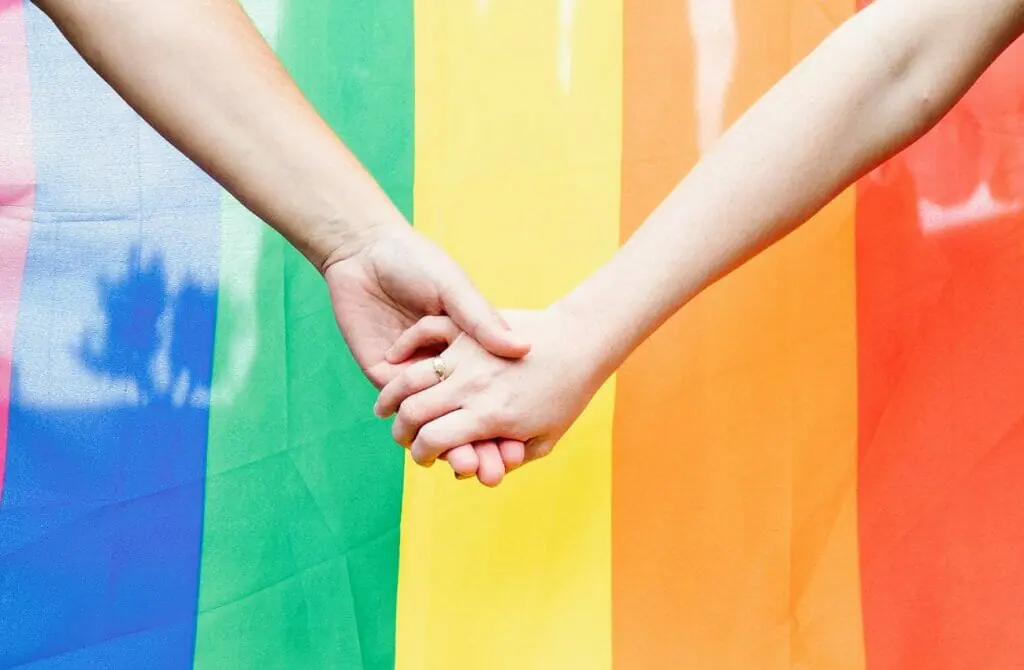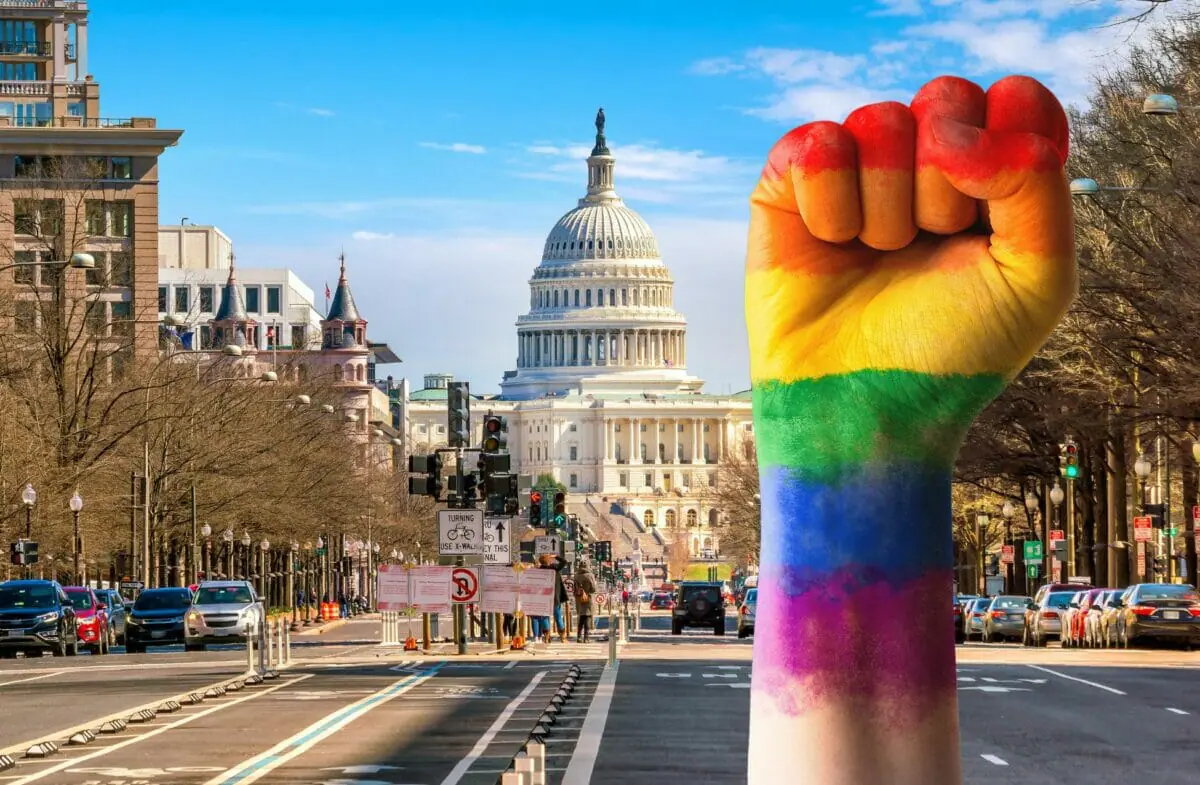LGBT rights in the United States have come a long way over the past several decades, with significant progress made in areas such as marriage equality, employment discrimination protections, and transgender rights.
While many local people have experienced improved rights and protections, it is essential for tourists, both domestic and international, to be aware of the varying landscape of LGBT rights and protections across the nation.
Although public opinion has shifted in favor of LGBT rights and legal protections have generally increased, travelers should remain cautious and vigilant, as the situation can change quickly, and not all regions of the United States can afford the same degree of protection for LGBT individuals. It is critical to seek current advice before traveling and stay informed about local laws and attitudes to minimize potential risks.
In advocating for LGBT rights and providing support, numerous organizations across the country work tirelessly to further the cause. These groups not only promote legal advancements but also offer resources and information that can be invaluable for LGBT individuals and allies who want to stay informed and protected.
Be sure to take advantage of their efforts and stay up-to-date with the latest information.
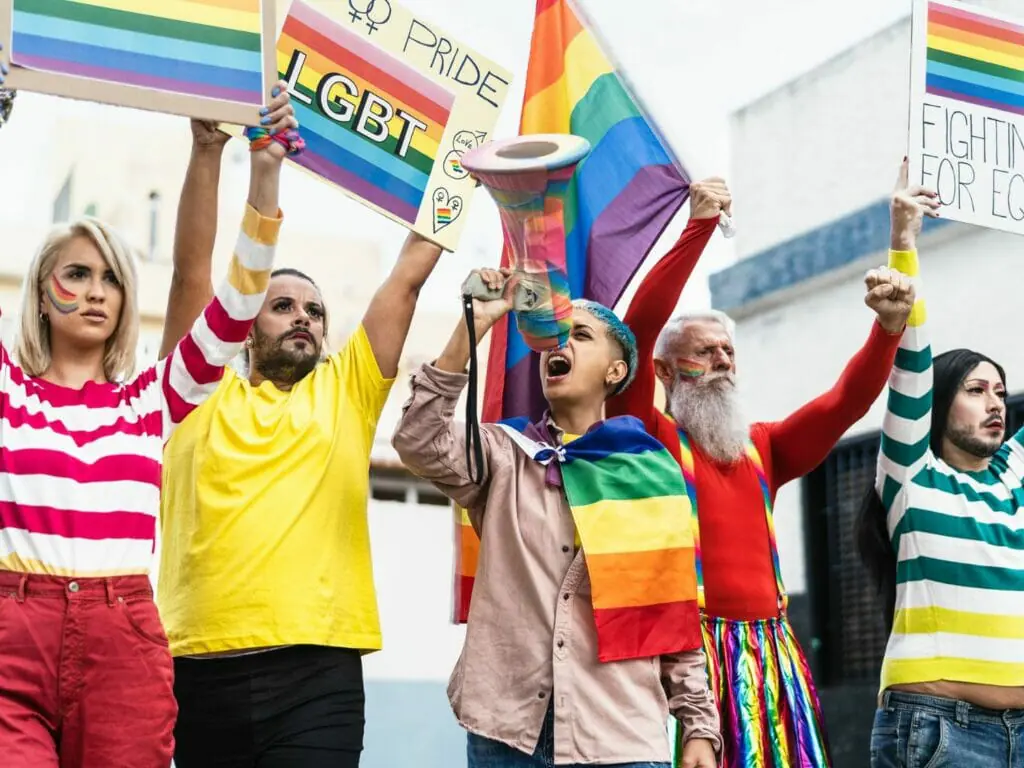
History Of LGBT Rights In The United States
The history of LGBT rights in the United States can be traced as far back as the 1920s when the first documented gay rights organization was founded. However, the movement for LGBTQ rights gained significant momentum in the 20th century. This section will provide a brief overview of the events and organizations that have shaped the history of LGBT rights in the United States.
One notable event in the history of LGBT rights is the Stonewall Riots, which took place in 1969 at the Stonewall Inn in New York City. This violent demonstration against police raids and discrimination is now considered a pivotal moment in the modern gay rights movement. Since then, various groups and movements have formed to advocate for the rights of the LGBTQ community.
During the 1950s and 1960s, the homophile movement emerged, consisting of organizations such as ONE, Inc., and the Daughters of Bilitis. These groups aimed to challenge societal norms and promote the rights and dignity of the LGBTQ community. Anti-sodomy laws, which were in place in many states, were often used to discriminate against and persecute members of the LGBT community. It wasn’t until 2003 that the US Supreme Court invalidated these laws in Lawrence v. Texas.
In 1953, President Dwight D. Eisenhower signed an executive order banning gay and lesbian individuals from federal employment, further highlighting the discrimination faced by the LGBTQ community. This order remained in effect until it was overturned in 1975.
The American Psychiatric Association played a significant role in changing societal attitudes toward the LGBTQ community when it removed homosexuality from its list of mental disorders in the Diagnostic and Statistical Manual of Mental Disorders (DSM) in 1973. This important step led to the gradual acceptance of LGBTQ individuals within society.
The 2010s saw notable advancements in same-sex marriage rights. Legalization occurred on a state-by-state basis until the Supreme Court’s landmark decision in Obergefell v. Hodges in 2015, which legalized same-sex marriage across the United States.
Efforts to combat discrimination based on sexual orientation and gender identity have also been an essential part of the LGBTQ rights movement. In 2020, the Supreme Court ruled in Bostock v. Clayton County, Georgia, that Title VII of the Civil Rights Act of 1964 applies to cases of employment discrimination based on sexual orientation and gender identity.
It’s important to note that situations surrounding LGBT rights can change rapidly, and information can become outdated. Readers should seek current advice before traveling and be aware of potential risks. Remain vigilant and be aware that bad actors exist everywhere. Local perspectives on LGBT rights can differ from those afforded to tourists. Reaching out to relevant LGBT advocacy groups such as the Human Rights Campaign, Lambda Legal, or GLAAD can provide further information and resources.

The LGBT Legal Situation In The United States
In the United States, LGBT rights have undergone significant progress in the past few decades, with changes in federal and state laws, as well as landmark cases in the US Supreme Court. However, it is crucial to remember that situations can change rapidly, and it is essential to stay vigilant and consistently seek current advice.
Federal Law and US Supreme Court Decisions: Some of the most critical advancements in LGBT rights have resulted from notable Supreme Court cases. In 2003, the court struck down remaining state sodomy laws in Lawrence v. Texas, effectively decriminalizing same-sex sexual activity. A monumental victory for same-sex couples came with Obergefell v. Hodges in 2015, when the court ruled that same-sex marriage was a constitutional right, making it legal across all 50 states.
Anti-Discrimination Laws and Protections: The legal landscape for discrimination protections varies across the country. Presently, 22 states have employment protections for LGBT individuals, and 20 states have hate or bias crime protections. The Equality Act, a comprehensive federal legislation aimed at providing nationwide anti-discrimination protections, has recently passed in the US House of Representatives but still faces challenges in the Senate.
Adoption Rights: Same-sex couples have the legal right to marry and adopt children in the United States. Following the ruling in Obergefell v. Hodges, adoption rights for same-sex couples have been recognized, though local adoption rules and regulations may still vary by state.
The Armed Forces and the U.S. Military: Since the repeal of the “Don’t Ask, Don’t Tell” policy in 2011, LGBT individuals have been allowed to serve openly in the U.S. military. Furthermore, the ban on transgender individuals serving in the military was lifted in 2021.
It is indispensable to understand that the legal situation concerning LGBT rights in the United States may differ for local people versus tourists. Tourists should take note of relevant local laws and remain vigilant.
Active national organizations and advocacy groups, such as the American Civil Liberties Union (ACLU), work tirelessly to advance LGBT rights and monitor legal developments.
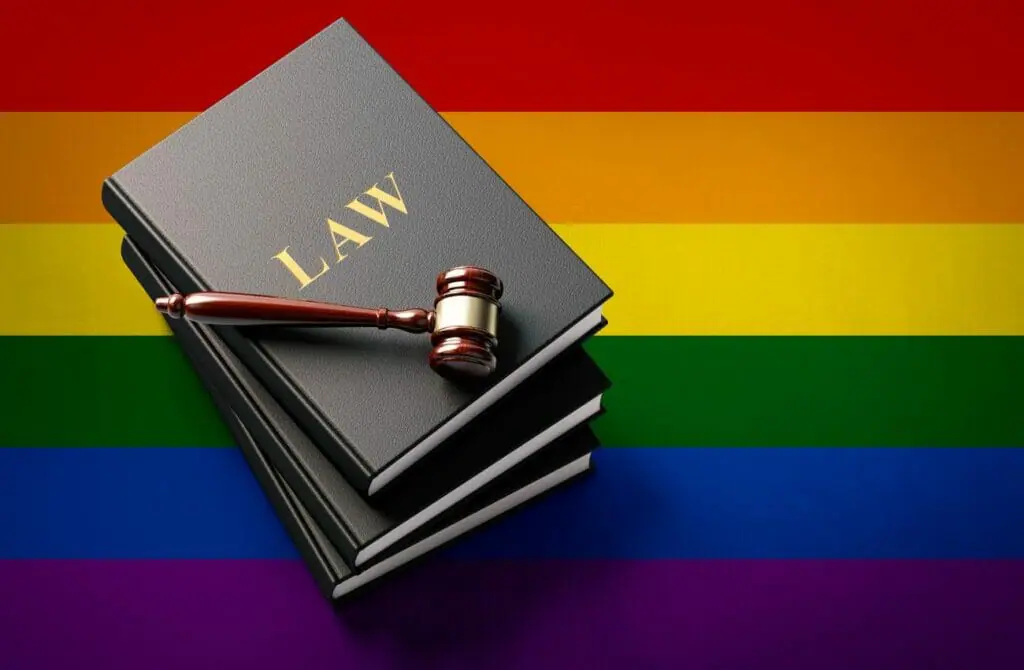

The LGBT Social Situation In The United States
Discrimination against the LGBTQ community in the United States remains a persistent issue despite significant progress made in recent years. Both local community members and tourists alike can face challenges related to their sexual orientation, gender identity, and expression. It is essential to stay informed and vigilant, as situations can change rapidly, and individual experiences can vary.
LGBTQ individuals in the United States may encounter discrimination in various aspects of their lives, such as employment, housing, and education. They may also experience hate crimes, harassment, and bullying. Transgender youth, in particular, may face increased challenges and risk of suicide.
Public opinion on LGBTQ issues has evolved in recent years, with a majority supporting equality and same-sex marriages. A Gallup poll conducted in 2020 indicated growing acceptance of LGBTQ rights. However, conservative and religious freedom groups continue to resist these changes, sometimes resulting in rhetoric or legislation that threatens LGBTQ rights.
Despite this, the LGBTQ community continues to advocate for their rights and work towards equality. Organizations such as the Human Rights Campaign contribute to this effort, focusing on issues like public accommodations, family rights, and the protection of LGBTQ youth.
To ensure personal safety, LGBTQ individuals should remain cautious and updated on current events related to LGBTQ rights both locally and nationally. It is also beneficial to connect with relevant LGBTQ advocacy groups for support and resources. Additionally, it may be helpful to identify safe spaces, such as LGBTQ-friendly businesses and establishments, as a precautionary measure.

Trans Rights In The United States
Transgender individuals face a range of challenges and discrimination in the United States. Although there have been significant advancements in recent years, they continue to experience disparities in rights and protections compared to their cisgender counterparts.
At the federal level, there has been slow progress in terms of protections for transgender individuals. The landmark 2015 Obergefell v. Hodges case granted same-sex couples the right to marry, but it did not address wider issues of discrimination based on gender identity. However, recent changes to the Equality Act under President Joe Biden’s administration have expanded the protection of transgender people from discrimination in multiple areas, such as housing, education, and public services.
One important aspect of transgender rights is protection against hate crimes and harassment. The Matthew Shepard and James Byrd, Jr. Hate Crimes Prevention Act, signed in 2009, expanded hate crime law to include crimes motivated by a victim’s actual or perceived gender, sexual orientation, gender identity, or disability. This federal legislation helps in prosecuting and punishing those who commit acts of violence against transgender individuals.
In the context of education, transgender youth face unique issues, including the ability to access appropriate facilities and participate in sports. Title IX, a federal law that prohibits sex-based discrimination in educational programs, has been extended to protect transgender students. However, controversy surrounding these policies continues, often fueled by fear and misinformation.
Transgender individuals looking to serve in the military have faced a long and complex struggle. Following the repeal of “Don’t Ask, Don’t Tell” policy in 2010, various administrative restrictions on transgender service members were removed. In 2021, President Biden signed an executive order lifting a ban on transgender individuals serving openly in the U.S. military, providing a more inclusive environment for all members of the armed forces.
Employment discrimination is another critical issue for transgender rights. Title VII of the Civil Rights Act of 1964 prohibits discrimination based on race, color, religion, sex, and national origin in employment. In the 2020 Supreme Court case Bostock v. Clayton County, the Court expanded the definition of “sex” to include sexual orientation and gender identity, providing greater protection for transgender employees.
Anti-discrimination laws and federal agencies play a critical role in safeguarding the rights of transgender people in the United States. Nevertheless, it is important for transgender individuals to be aware of the ongoing challenges, including potential changes in legislation and enforcement on a state-by-state basis. Vigilance and connection with local LGBTQ advocacy organizations can help provide necessary support and advocacy for transgender rights in the community.


The Future For The Queer Community In The United States
As the United States continues to advocate for LGBTQ+ rights and equality, it can be observed that recent policy initiatives and legislative efforts indicate a promising future. Following President Biden’s Proclamation on LGBTQ+ Pride Month in June 2021, his administration has championed LGBTQ+ equality as a focal point for policy changes and reforms.
In Congress and state legislatures, an increasing number of bills are introduced to promote and protect LGBTQ+ rights, including the Equality Act. Though there have been instances of bills restricting LGBTQ+ rights, the overall trend indicates positive progress. Advocacy groups, such as the Human Rights Campaign and Lambda Legal, actively lobby and drive initiatives in favor of LGBTQ+ people.
However, it is essential for individuals to remain aware of the changing landscape, as situations can change rapidly, and the information available may be outdated. To ensure personal safety, one should keep up-to-date with local laws and seek advice from trustworthy sources before traveling or relocating.
While the future of LGBTQ+ equality may appear promising on a national level, progress may differ among local communities and for various demographics, such as residents versus tourists. To protect personal rights and create a more inclusive environment, individuals can engage with local LGBTQ+ advocacy groups and collaborate on initiatives focused on equality and education.
In conclusion, the United States demonstrates significant progress toward LGBTQ+ equality, but vigilance and active participation of local communities and individuals is vital to ensure their rights are protected and promoted.
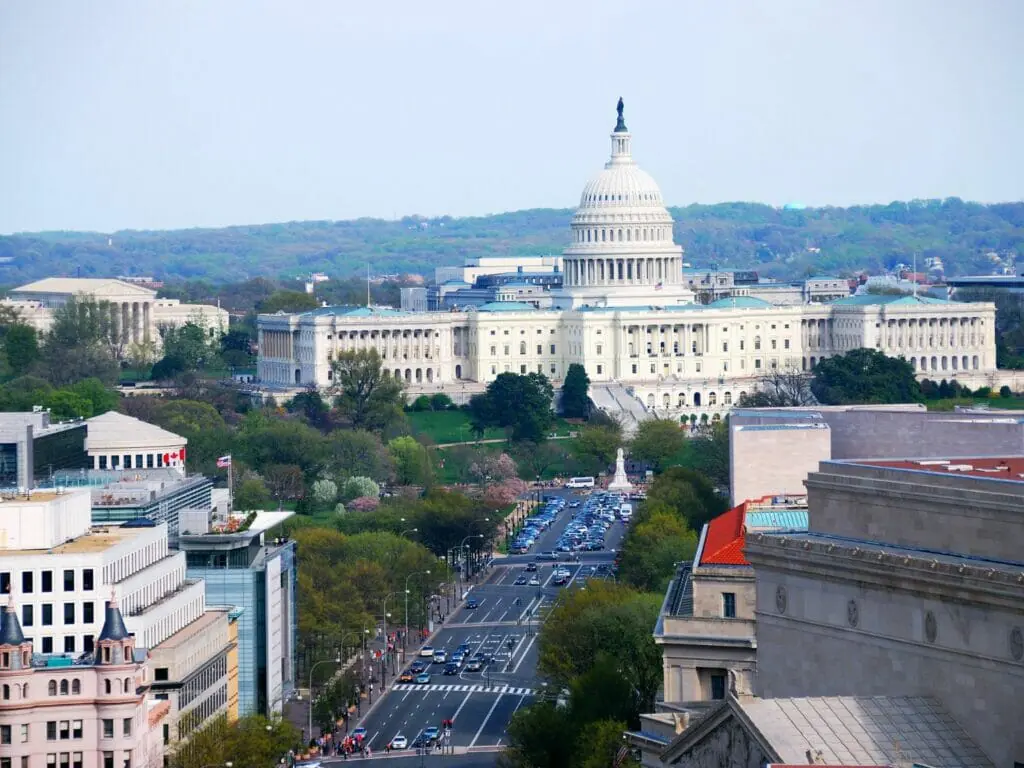
Protect Yourself While Travelling In Gay United States
In the United States, LGBT rights have come a long way over the years, with many strides made to ensure equal rights for everyone, regardless of their sexual orientation and gender identity. However, it is important to protect yourself as situations can change, and there may be bad actors, whether you are a local or a tourist.
Discrimination and Legal Protections
Anti-discrimination laws have been enacted, such as The Equality Act, which passed the US House of Representatives in February 2021, aiming to protect against LGBT discrimination in various aspects of life. While it hasn’t passed the Senate yet, these protections are essential for ensuring the human rights of LGBT individuals. The federal Fair Housing Act further helps protect against sex discrimination, including discrimination on the basis of sexual orientation and gender identity, in housing situations.
Education, Employment, and Housing
In education, employment, and housing, it is important to be aware of your rights and report any instances of discrimination, violence, harassment, or bullying you encounter. Mishandling of your privacy may also be a concern, so it is crucial to know your rights concerning confidentiality and how your information is treated.
Public Accommodations and Services
Public accommodations, such as restaurants, hotels, and retail stores, are required to treat everyone equally, regardless of their sexual orientation or gender identity. In case you face any discrimination, it is helpful to be knowledgeable about state and federal laws and seek remedies accordingly.
Health and Safety
In the face of violence or harassment, either in person or online, take appropriate measures to safeguard yourself. Remain vigilant at all times and consider reaching out to supportive networks and legal systems if necessary.
LGBT Advocacy Groups
There are numerous LGBT advocacy groups that can assist in providing information, support, and resources to help navigate any challenges you may face. Some of these organizations include the American Civil Liberties Union (ACLU) and Lambda Legal.
As situations can change and information may become outdated, it is essential to stay updated on current events and legal developments. Always consult reliable sources and seek current advice before making decisions related to travel or other matters related to LGBT rights in the United States.
